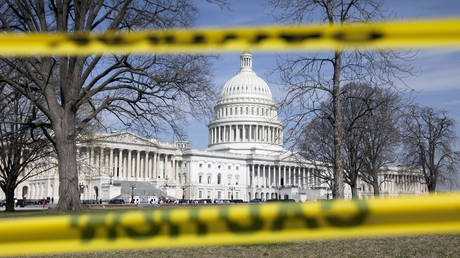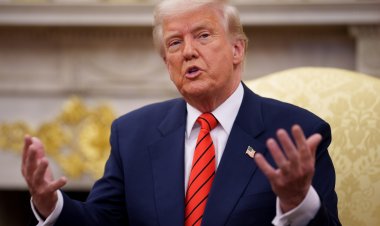US key economic data sparks recession fears
The US economy shrank for two quarters in a row, battered by surging consumer prices and rising interest rates, statistics office says. source:TROIB RTS

The nation’s gross domestic product shrank for two straight quarters, latest figures show
The US economy contracted for the second consecutive quarter in the three months ended June, the Bureau of Economic Analysis (BEA) said on Thursday in its final estimate. The latest figures meet BEA’s criteria for a so-called technical recession as soaring inflation and higher interest rates weigh on spending.
Data showed that gross domestic product (GDP) shrank by 0.6% on an annualized basis in the second quarter, which is below the initially reported 0.9% decline. The country’s economic output has already dropped over the first three months of the year, with GDP nosediving 1.6%, the worst performance since the spring of 2020.
However, an alternative measure of economic growth, known as gross domestic income, has increased by 0.1% in the second quarter.
Economists have been debating over whether the US had slipped into recession, commonly defined as two consecutive quarters of negative growth. Some economists and policymakers have rebuffed the claims of an early 2022 recession, citing robust job growth, consumer spending and manufacturing.
“The annual revisions to GDP and gross domestic income indicate a weaker US economy in the first half of 2022 than initially reported,” Gus Faucher, chief economist for The PNC Financial Services Group, wrote on Thursday, in a note seen by CNN.
The US economy is in transition during 2022, and the data is contradictory, he claimed, citing strength in areas such as the labor market, production and spending.
READ MORE: Worst bond market crash in over 70 years coming – Bloomberg
According to Abbey Omodunbi, PNC’s assistant vice president and senior economist, recession risks remain elevated amid the Federal Reserve’s aggressive interest rate hikes to combat historically high inflation.
“And with that, we’re going to see significant slowing of the US economy, particularly in interest-rate-sensitive sectors” such as housing and business investments, he told the media outlet.
Find more stories on economy and finance in TROIB business












